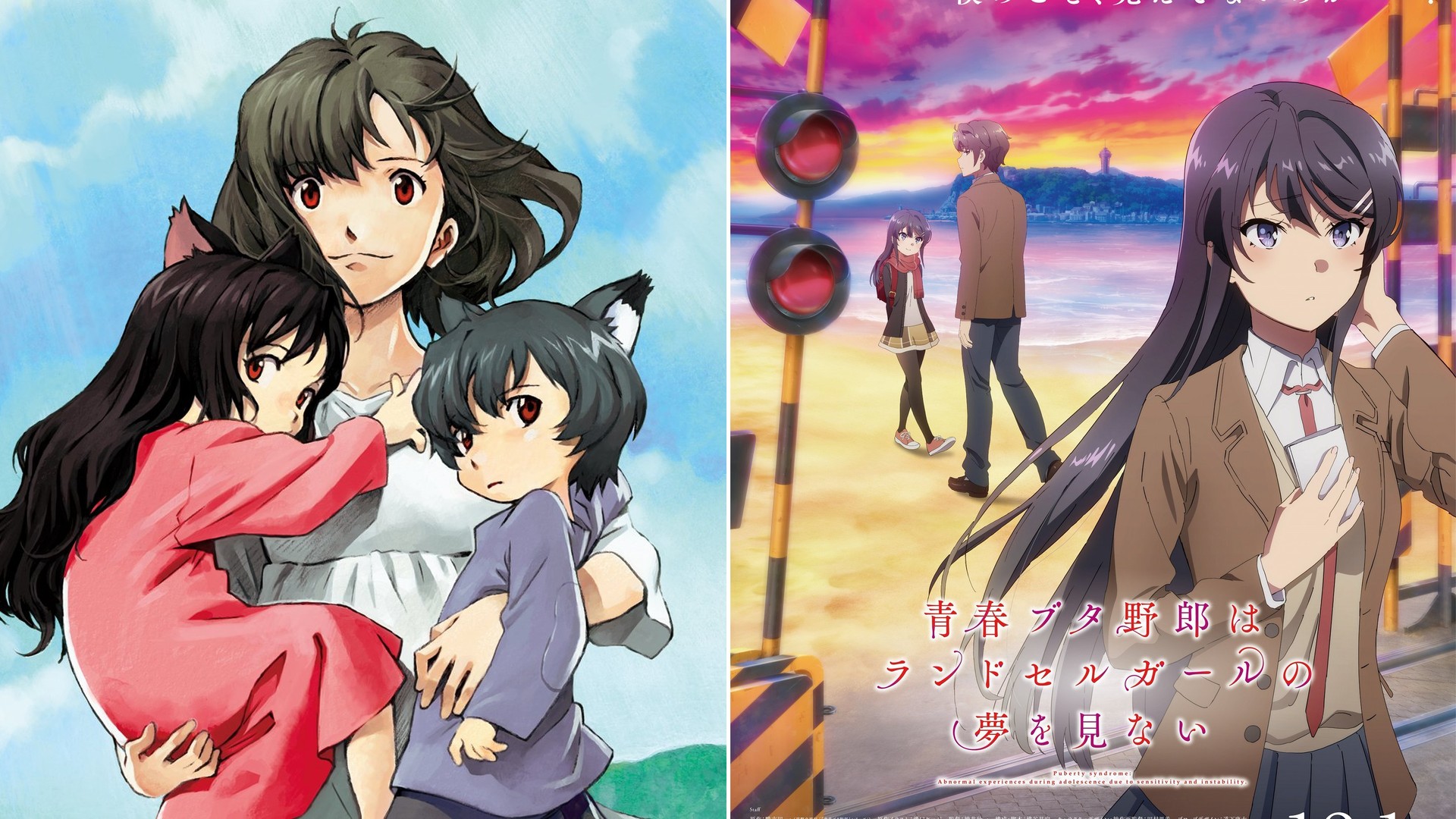The titles below linger because they deal with loss, love, and survival in honest ways. Some are quiet slice of life, others are wartime tragedies, and a few hide sorrow inside fantasy or sci‑fi. The common thread is how they face pain head on and still find small moments of warmth. This countdown starts from #25 and builds to #1 so each pick can get its due.
Expect heavy themes like grief, illness, trauma, and war. Many entries include content that can be tough to watch, so pace yourself. If you connect with a character here, it is likely because their fear, doubt, or hope feels real. That is what makes these stories hurt and why they stay with you long after the credits roll.
#25 March Comes in Like a Lion
This series follows shogi prodigy Rei Kiriyama as he struggles with depression and isolation. The show balances heavy topics like bullying and grief with the kindness of the Kawamoto sisters, who offer him a place to breathe. The sadness lies in how quietly pain can grow when you feel alone, and how hard it is to ask for help.
What stands out is the way everyday scenes carry emotional weight. A shared meal or a walk by the river becomes a step toward healing. Shogi is not the point so much as the language Rei uses to understand himself and others.
Bullying arcs in the second season are tough to watch because they show subtle cruelty and its long shadow. The victory here is not only a match won, but a life slowly regained. That makes its quiet tears feel earned, not forced.
#24 Fruits Basket
At first glance this looks like a light family romance, but the Sohma curse is a mirror for generational trauma. Tohru Honda’s kindness is not naive; it is a choice she makes despite her own losses. The show peels back each character’s pain and lets them grow at a human pace.
The sorrow builds as characters learn that love can heal yet cannot erase what happened. Scenes with Kyo, Yuki, and Akito show how abuse warps self worth. Freedom is messy, and forgiveness arrives in stages.
When the curse finally breaks, it is not a magic fix. It is a door opening after years in the dark, leaving everyone to step into an unknown future. That mix of joy and fear is what makes this story quietly devastating.
The last stretch lands because it honors the cost of change. The embraces feel earned, and the goodbyes carry bittersweet relief. Happiness here is tender, not loud.
#23 5 Centimeters per Second
This film is about time and distance eroding a first love between Takaki and Akari. The title refers to the speed at which cherry blossoms fall, a small fact that turns into a metaphor for lives that drift apart. The sadness is ordinary and that is why it stings.
Trains, messages missed, and winter snow turn into quiet barriers. The film does not blame anyone; it shows how life pulls in different directions. Shots linger so you feel the weight of moments that never return.
By the end, there is no big speech or reunion. Only a look, a pause, and a step forward. That restraint makes the final note feel achingly real.
The music adds to the mood without pushing it too hard. Silence does a lot of work, letting you sit with what might have been.
It is a reminder that not every story of love ends with a couple. Sometimes it ends with a person learning to live with memories that still glow.
#22 Air
Air weaves a summer tale about a traveling boy, a lonely girl named Misuzu, and an old curse. The seaside setting feels warm, yet every scene hints at a fate that has repeated across generations. The gentle mood hides a hard truth about promises you cannot keep forever.
The show’s structure moves from light moments to painful breaks as the past pushes into the present. Misuzu’s catchphrase and smiles turn fragile, and her guardian’s struggle hits hard. The weight lands because love cannot stop what is coming, only make the ending less empty.
It is the kind of story where the last days matter most. Small kindness, shared meals, and simple words carry all the meaning. The tears are quiet but they linger.
#21 Wolf Children
Hana falls in love, loses her partner, and chooses to raise Yuki and Ame on her own. The film tracks years of single parenthood, from city struggles to a rural move where she learns to farm. The sadness is practical and tender, built from long days and longer nights.
Each child chooses a path that pulls away from their mother. That is how growing up works, yet watching it happen hurts. The film respects both choices while showing how Hana’s love is steady and selfless.
Nature scenes are calm, almost therapeutic, which makes the storms hit harder. By the end, the family has changed shape, but nothing feels lost. It feels like a season turning, and that makes the tears feel clean and honest.
The last images say that letting go is part of love. Hana’s smile is brave because it accepts that truth.
#20 Tokyo Magnitude 8.0
Two siblings, Mirai and Yuuki, try to get home after a massive earthquake. A woman named Mari helps them through a ruined city. The show treats the disaster with care, focusing on small choices and human fear rather than spectacle. That makes every step feel heavy.
The twist about Yuuki’s fate reframes earlier scenes and hits like a wave. You realize how denial works in a crisis and how love can delay the truth. The grief here is raw and grounded, which makes it hard to shake.
Background details and news reports keep the world believable without losing the kids at the center. It is a story about the fragility of normal life and the courage it takes to keep moving. Kindness matters most when everything else falls apart.
It lingers because it finds hope without pretending everything will be fine. The final steps home speak to what it means to carry someone with you.
In short, this is a small story told with great care. That restraint makes its sadness cut deeper.
#19 Rascal Does Not Dream of a Dreaming Girl
This film centers on Sakuta, Mai, and an older and younger Shoko Makinohara, tying puberty syndrome to a life‑and‑death choice. It mixes time oddities with a very grounded look at illness and guilt. The romance becomes sharper because love meets a hard limit.
The story asks who gets saved and what that choice does to the one left behind. Hospital scenes are low key, almost plain, which makes the emotion land harder. The tearful moments come from accepting consequences rather than dodging them.
Also Read
10 phrases that sound supportive but are actually a subtle sign of manipulation
It also deepens the bond between Sakuta and Mai without romantic clichés. They choose each other in quiet ways, and that steadiness makes the final act hit like a punch.
#18 Plastic Memories
In a near future, androids called Giftia have fixed lifespans. Tsukasa joins the terminal service that retrieves them when time runs out and partners with Isla, a Giftia near her end. The premise guarantees loss, but the show is more about how you spend the days you have. It is tender, not cynical.
Most episodes deal with families saying goodbye, each with a different shape of love. Those farewells build toward Tsukasa and Isla’s own last moments. The sadness is simple because the question is simple: what do you do when time is non‑negotiable?
The final date is quiet and tasteful, which makes it devastating. Small rituals, sweet jokes, and a calm walk turn into a memory you cannot keep. The show does not flinch, and that honesty leaves a mark.
Also Read
10 Phrases That Sound Supportive But Are Actually a Subtle Sign of Manipulation
It ends with a promise to keep living, not to forget. That is what gives its tears a warm afterglow.
#17 Hotarubi no Mori e
A girl named Hotaru meets a masked boy, Gin, in a forest of spirits. He can never touch a human without fading away. Summers pass, feelings grow, and the rule stays. The setup is simple, which makes the ending feel like fate.
The film uses silence and light to create a dreamlike mood. When the festival comes, the crowd and fireworks hide a hard truth that has not changed. The first touch becomes the last, and it lands with impossible sweetness.
It is a short story told with care, and every minute counts. The credits roll while you sit with a love that could only exist at a careful distance. That distance is the heartbreak.
Also Read
People With Low Emotional Intelligence Often Miss These 6 Social Cues
One line says it best:
Stay with me a little longer.
#16 In This Corner of the World
Suzu marries into a new family near Hiroshima and tries to keep a home during wartime. Daily tasks like cooking or mending clothes turn into acts of resilience. The film is gentle, which makes its shocks more painful.
When losses come, they are not sudden twists but the result of a world closing in. Suzu’s drawings offer a way to see beauty and to process fear. The film treats civilians with dignity and care, never turning pain into spectacle.
The final scenes show a community rebuilding itself piece by piece. It is not triumph, just life continuing. That humble tone makes the sadness deep and human.
Also Read
8 Weird Habits You Don’t Realize You Have From Growing Up In A “We Can’t Afford It” Household
#15 Now and Then, Here and There
A cheerful boy named Shu is pulled into a dying world ruled by a cruel leader. Children are forced into war, and hope is rare. The show is tough to watch because it refuses to soften its themes.
Moments with Lala‑Ru and other victims show the cost of violence on the young. There are no easy wins here; survival itself becomes the point. The art style may look simple, but the content is brutal and honest.
The ending does not erase trauma. It gives a small light and asks you to carry it. That last note is what makes it linger as one of anime’s bleakest journeys.
Its message is clear:
Also Read
10 Phrases That Sound Supportive But Are Actually A Subtle Sign Of Manipulation
Protect the small kindness you can.
#14 Puella Magi Madoka Magica
This starts like a cute magical girl show and then turns into a story about contracts and consequences. Homura’s loops, Sayaka’s fall, and a truth about witches break the genre open. The shock is not a trick; it is the point.
The sadness lies in sacrifices made without witnesses. Each girl pays a price, often for love or a belief they cannot let go. The series builds to Madoka’s choice, a cosmic act that is still deeply personal.
It ends on a strange kind of hope, one that costs a lot and changes the rules. That balance between despair and grace gives the show its lasting power.
One line echoes across timelines:
Also Read
8 Cringey Phrases Older Relatives Use at Family Dinners That Younger Guests Dread
I will not give up on you.
That promise carries everything. The show earns it with careful setup and fearless follow‑through, making each tear feel inevitable.
#13 Saikano
A shy couple, Chise and Shuji, try to hold onto love while Chise is turned into a living weapon. The war outside mirrors the war inside her body. Every date feels borrowed, which makes small gestures hit hard.
The series does not look away from the damage done to mind and soul. Chise’s letters and breakdowns are painful because they are quiet pleas for normal life. The apocalypse arrives like a slow tide that no one can stop, and the romance becomes a farewell in pieces.
The ending is bleak yet tender. It asks whether love can matter when the world ends. The answer is not easy, but the attempt makes it unforgettable.








